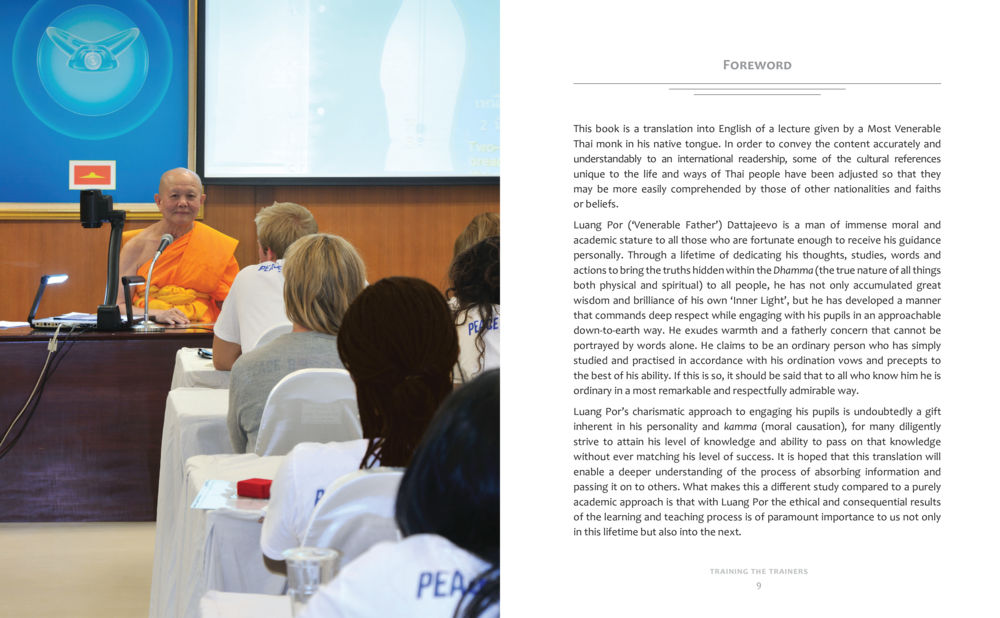Understanding Dhamma Through the Teachings of Luang Por Dattajevedo : หน้า 5/47
Training the trainer part 1 : หน้า 5/47 A translation of a lecture by Venerable Father Dattajevedo, focusing on the ethical aspects of learning and teaching Dhamma.
2 ครั้ง

สรุปเนื้อหา
This book presents an English translation of a lecture by Luang Por Dattajevedo, a respected Thai monk, emphasizing the importance of ethical learning and teaching in understanding Dhamma. His charismatic and approachable style engages students while imparting deep wisdom. By adjusting cultural references, this work aims to make Dhamma accessible to a global audience. Luang Por's ordinary yet remarkable presence fosters a unique learning environment that transcends mere academic study, stressing the significance of moral outcomes in education. This translation aspires to facilitate a deeper comprehension of the learning and teaching process, impacting not just this life but future ones as well. For more insights, visit dmc.tv.
หัวข้อประเด็น
- Luang Por Dattajevedo
- Dhamma teachings
- Ethical learning
- Cultural adjustments in teachings
- Engaging educational methods
- Moral causation in education















































